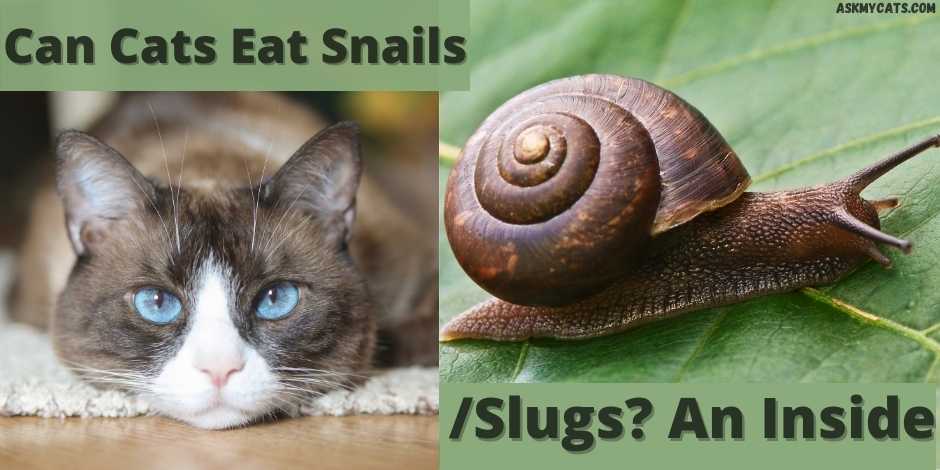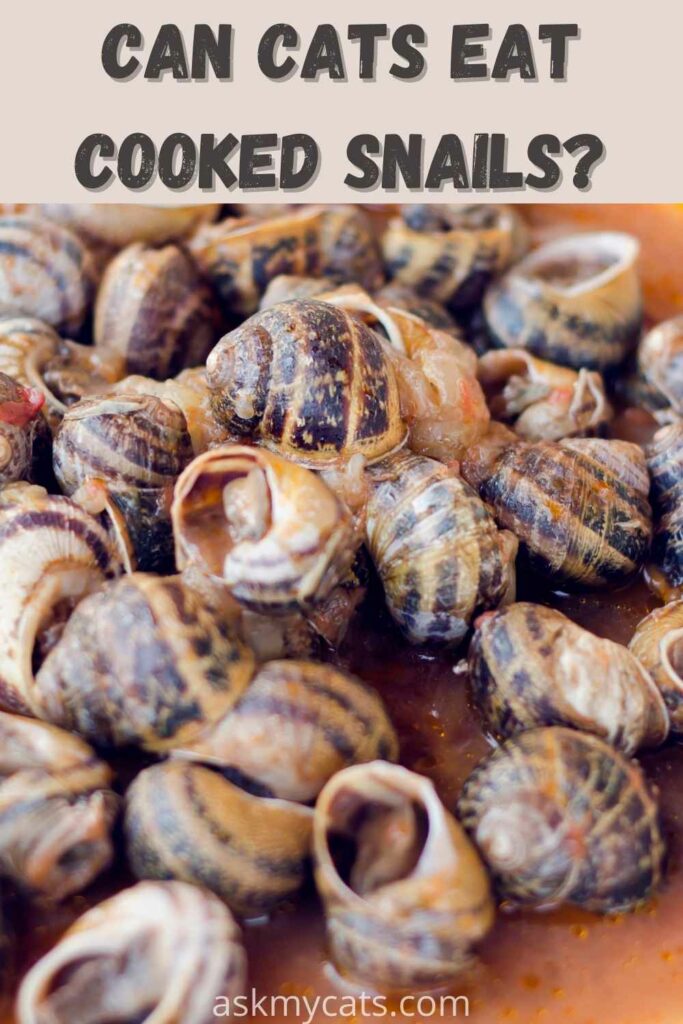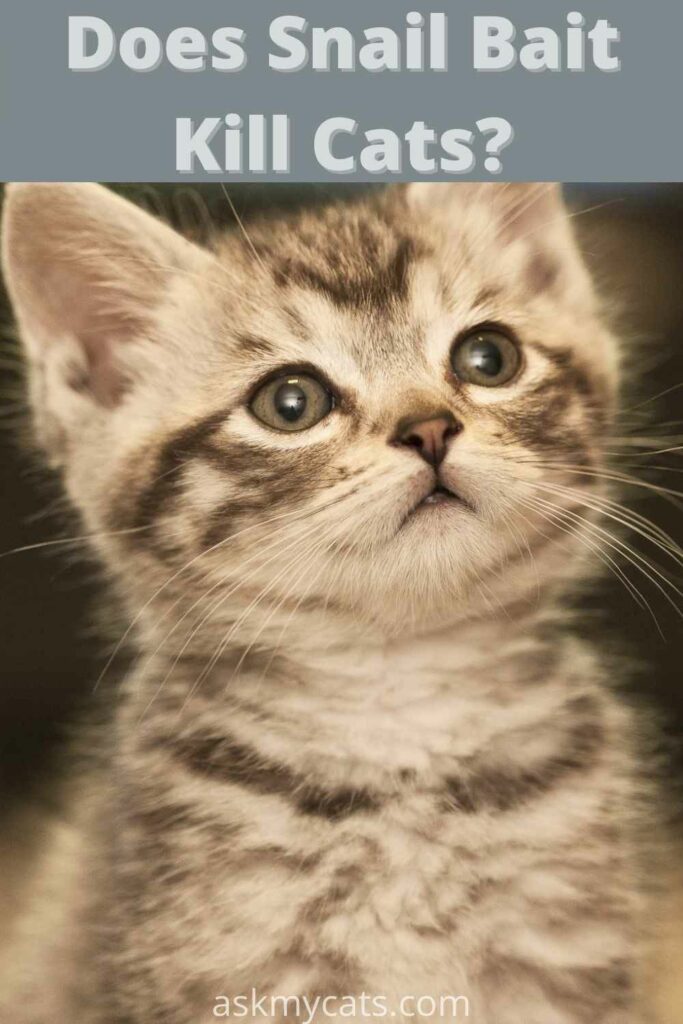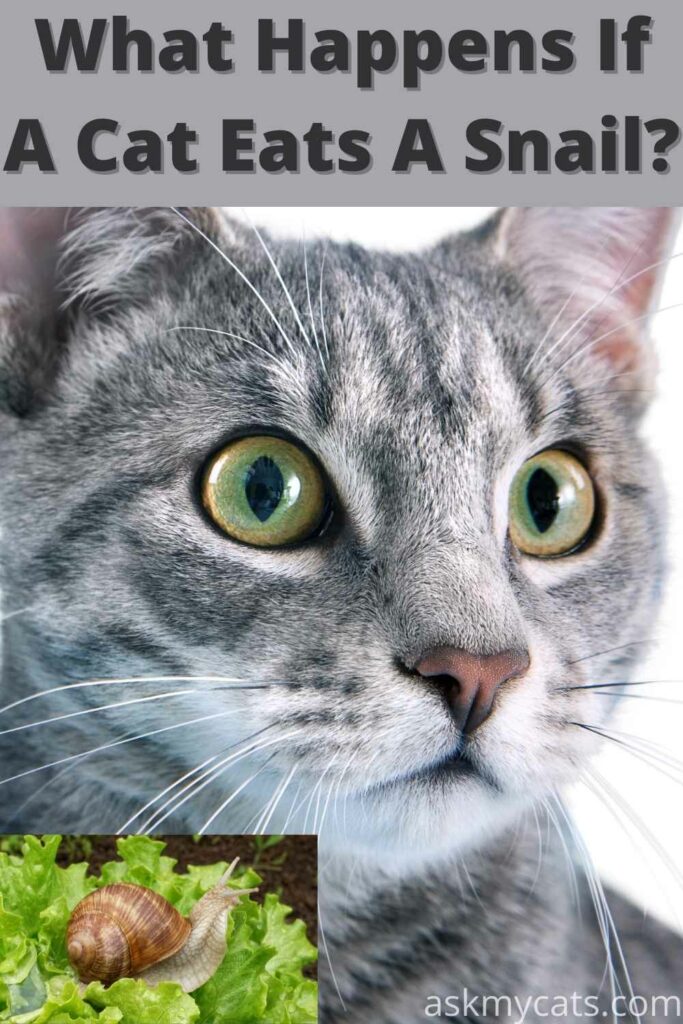The most fascinating thing that I find about being in a cat world is that anything and mostly everything has the possibility of intriguing you to a whole another level.
Especially when you are a cat parent, you happen to get enticed with the little things and you begin to start the quest for finding the answers.
I have been there and I know how exhausting it can be sometimes, but I assure you this can be your biggest salvation.
Most people live in the areas where snails can be easily found in their yards and if you let your dear furry baby outdoors, then you must be familiar with the question that now I am about to bring forth.
Enough with my blabbering, I often wonder what would happen if snails become an integral part of our cat’s life? Are they toxic?
I am sincerely hoping you have guessed today’s topic but let me bring you more closer.
It’s about can cats eat snails/slugs?
Let me answer in short for you, cats shouldn’t eat snails/slugs as they harbor parasites inside them that can turn out to be hazardous for the body that consumes them and fatal occurrences can be inevitable in some situations.

Come on, let’s take a dig.

Give Your Cat the Perfect Day
Get the Free Ebook!
Can Cats Eat Cooked Snails?
This is a common question that you might have thought of, so take some rest, I am going to answer that for you today.
Cooked snails shouldn’t be given to your cats as they can carry parasites that can make your feline’s system toxic and prone to many serious illnesses.

It is very common for you to assume cooked snails are a healthy choice for your feline but no, it’s not. Even raw snails are not advisable to cats as they contain only a few nutritional values and a massive risk of being comprised of harmful parasites that can disrupt your little furry baby’s digestive system when ingested.
This should also be brought to you that whenever snail delicacies such as Escargot is prepared, they are cooked in garlic to suit the complex systems of humans and to kill the parasites that a snail may contain.
However, when it comes to our little cats, this is not the real picture.
Garlic is not at all recommended for cats and has a huge probability of ending up in pancreatitis and toxic to your cat.
If you still want to serve cooked snails to your feline, then you can do so by extracting ginger and cooking it by yourself in high heat, but sorry to break it to you, it is of no use.
Does Snail Bait Kill Cats?

Yes, it has the vast possibility of doing so as snail bait comprises of two poisons that can be poisonous for your cat, ultimately ending up in death.
Let me brief it a little for you.
Snail bait contains two poisons namely metaldehyde and methiocarb both of them can be toxic for your cat if even a small amount is ingested by your cat considering felines have a sensitive body structure that doesn’t have any coping mechanism to deal with such hazardous contents.
Furthermore, these products have 3 or 4% of poison which is indeed enough to kill you feline, the other things that these products comprise of are, bran or molasses.
On top of that, bait usually comes in powder form that can form itself around your cat’s paws and eventually be licked off.
The thing to remember is that don’t pile up snail bait in places where your cat seems to wander and also don’t give your cat access to the treated area until you stop using such products as mind you, even a little lick can be fatal and its repercussions could be massive.
What Happens If A Cat Eats A Snail?
Many things and take place if your cat has ingested a snail, but don’t worry If your cat has just eaten one.

Okay to put the pressure off you, one snail cannot do anything to your healthy cat, but if your feline is seeking medical assistance for any cause, please visit the veterinarian because mostly, whenever a cats health is deteriorating, even a subtle thing can harm them in varied ways.
If you have noticed your cat eating a snail, then it’s time for you to notice some signs. Check if your cat is following the daily routine or is reluctant to move or leave the spot.
If the latter is something that persists, hurry to the vet.
Another crucial thing to look for is to see whether your cat is hydrating itself normally or not, if not, then there are chances that snail is stuck in your cat’s throat which can end up choking. Try to give your cat water and keep it hydrated to ensure the excretion of harmful toxins through urine.
Ensure that your feline is using the litter box the way it used to prevent the accumulation of any parasites in the stomach ending up in diarrhea or lethargy.
I know this situation can be troubling and also bring fatigue to you, to help you recognize these changes I am listing down some changes below that can help you to decipher the problem in the earliest stage.
- Reluctant to move
- Blood in urine
- Breathing issues
- Coughing
- Unusual lethargy
- Dehydration
Consider it as a vet call if any of these signs hang around for long. Take action swiftly.
Can Snails Kill Cats?
Yes, it is quite possible for snails to kill your cat but it’s very rare and unlikely.
To help you decipher it a little bit, snails can kill your cat but that type of snail is not something that can be found in your yard.
Cone snails have the ability to poison your cat by secreting or injecting lethal doses of poison in your cat that either end up in fatal occurrences or serious illnesses.
While as I mentioned, the snails that are found in your yard are not that toxic but still the possibility of it being harmful Is not completely ruled out.
If your cat ingests a snail then it can end up in medical assistance or sickness in your felines for a few days.
Great for you that cone snails belong to tropical reefs and not your yard, you can heave a deep sigh.
Are Garden Snails Toxic For Cats?
No, garden snails are not toxic for your cats but it depends on your cats underlying health conditions and lungworm that is found in garden snails.
Let me elucidate that for you, garden snails cannot do much to the body of your feline if it is healthy and free of any diseases.
But it should be clear to you that some garden snails carry lungworm that can be extremely toxic for your cat. Lungworm can travel to your cat’s body through garden snails which can be life-threatening to your feline if not cured in time.
It can be severe in elderly cats that are going through major pre-existing health issues and also in kittens that don’t have any mechanism to deal with such poisonous content entering their body.
In addition to that, garden snails leave behind a mucus that is said to carry all the dirt and damp in the surface which when goes inside your feline’s mouth can end up in mouth cancers and severe illness that might not be treated if not identifies at the correct stage.
Alas, ending up in the death of your little furry baby.
Do Cats Eat Slugs?
Cats have the habit of using anything that they find in the backyard as supplements to their diet, so yes, cats do eat slugs.
Slugs are insects found in the backyard of any common household. It is very common for your feline to creep upon such insects if you allow your cat outdoors.
Keeping up with the fact that cats are born prey and like to find their food in their ways is also another reason why cats seem to eat slugs. In addition, as we all know cats find moving things appealing so what other than laying their eyes on slugs? It is a treat for your feline, paw-rents.
Do Cats Eat Slug Pellets?
Yes, cats eat slug pellets that contain a poison namely metaldehyde which can lead to death in your little feline.
Slug pellets are pesticides that are used to keep the harmful slugs away from houses.
When the area where you have used the slug pellets is accessible to your cat it is quite likely your cat will lick it that can end up in extreme and severe repercussions that end up in death, in most cases.
In such cases, you need to keep your cat from coming to the area in which the pesticide is scattered.
Let me tell you if your cat eats slug pellets, it will lead to conditions like restlessness, breathlessness, seizures, and death still being on top of the list.
Can Slug Slime Harm Cats?
Yes, slug slime can harm your cat in extreme ways that can lead to ultimate death if goes uncured.
Usually, pesticides are used to deter slugs that stay in a slug body which can further travel inside your felines system causing disruption and violence in the body which escalates more and toxifies the vital organs of your dear feline.
Though we have discussed earlier in the article that slugs don’t possess any harm to your cat but the slime or mucus that they produce can be harmful to your cats ending up in various health issues such as-
- Agitation
- Diarrhea
- Vomiting
- Raced heart rate
- High temperature
Urgently visit the veterinarian if any of these issues are noticeable and recurring.
Why My Cat Find Snails Appetizing?
Cats are prey by birth and it’s their natural tendency to creep up on the lower section of the food chain.
Cats like to dominate other animals and in this case, where snails are much small in size, they find it a great opportunity to get their hands on them.
Another reason why cats do so is that they considered the backyard as a mode of bringing addition to their lives and a supplement to their existing diet, they like to feed on insects which makes snails look appetizing to them.
Frequently Asked Questions
Why did some cats play with snails?
Cats are attracted and inquisitive to know everything that moves, snail’s slow movement makes them a great site of attention for cats which makes cats drool over snails.
What to do if cats cannot stop eating snails?
Don’t let your cat go outdoors before you use pesticides to keep them away from your house. Seek their attention on any other side to lure it away from going in that area.
What happens if a cat eats bugs?
Your cat is likely to have an upset stomach if your cats eat bugs. Bugs are not toxic and don’t possess any severe harm to your cat.
Final Words
At the end of this article, we have come to the conclusion that no matter if snails are toxic or non-toxic, you should, either way, keep your feline from eating them, because it is anyway harmful to let your cats have it.
To put my words to rest and let your words begin, let me begin by dropping here a question for you, tell me when was the first time you saw your cat eating snail? What was your reaction?
Come drop your answers in the comment section and help other people in our community to learn from your experiences.
